Pommelien Thijs – Atlas Lyrics
[Songtekst van “Atlas”]
[Verse 1]
Ik heb zand in mijn zakken en wind in mijn haar
De hoop die ik had, hangt goed aan elkaar
Ik moet bergen verzetten, mijn jas is er zwaar van
Ik had water gevangen in de kom van mijn hand
Ik bracht het naar zee, ik zwom terug naar land
Tot stukje voor stukje de kustlijn verandert
[Chorus]
Jij zei dat het klaar was, noemde mij je atlas
Sorry dat ik jou nog op handen draag
Jij doet of het niks was, ik gaf te veel, maar fuck dat
God, je bent complex, maar dat heb ik graag
Dus ik verkoop mijn spullen, bouw huizen van karton
De prijs die ik betaal om te denken dat het kon
Ik wist dat het zwaar was, niet dat het niet waar was
Je wereld op mijn schouders, nooit andersom
Nooit andersom
[Post-Chorus]
(Ah, ah)
Nooit andersom
(Ah, ah)
Jij had een blok aan je been, je wist niet dat ik er was
Trok mij door de modder, daarna
Vroeg ik wat er op je borst lag, is daar nog plaats voor mij?
Ik wist dat het goed ging komen, toen was het moment voorbij[Chorus]
Jij zei dat het klaar was, noemde mij je atlas
Sorry dat ik jou nog op handen draag
Jij doet of het niks was, ik gaf te veel, maar fuck dat
God, je bent complex, maar dat heb ik graag
Dus ik verkoop mijn spullen, bouw huizen van karton
De prijs die ik betaal om te denken dat het kon
Ik wist dat het zwaar was, niet dat het niet waar was
Je wereld op mijn schouders, nooit andersom
Nooit andersom
[Bridge]
Bekeken wou ik dat ik onze weken ritueel in brand kon steken
Te veel gevraagd?
Achteraf bekeken waren het labiele weken, ik zou beide benen breken
Als jij het vraagt
[Chorus]
Maar jij zei dat het klaar was, noemde mij je atlas
Sorry dat ik jou nog op handen draag
Jij doet of het niks was, ik gaf te veel, maar fuck dat
God, je bent complex, maar dat heb ik graag
Dus ik verkoop mijn spullen, bouw huizen van karton
De prijs die ik betaal om te denken dat het kon
Ik wist dat het zwaar was, niet dat het niet waar was
Je wereld op mijn schouders, nooit andersom
Nooit andersom
Atlas by Pommelien Thijs
“Atlas” is a poignant song by Belgian artist Pommelien Thijs, featured on her album released in 2022. The song delves into the complexities of emotional burdens within relationships, using rich metaphors and introspective lyrics to convey its message.
Quick summary
The song explores the emotional weight of supporting a partner, highlighting themes of sacrifice, frustration, and the desire for mutual support in a relationship.
In-depth lyrics analysis
The song opens with the lines “Ik heb zand in mijn zakken / En wind in mijn haar” (I have sand in my pockets / And wind in my hair), which sets a scene of struggle and resilience. The imagery of sand suggests a heaviness, while the wind symbolizes freedom or change. This juxtaposition introduces the listener to the narrator’s internal conflict: the desire to be free yet feeling weighed down by responsibilities.
As the song progresses, the narrator describes their efforts to support their partner, stating, “Jij zei dat het klaar was, noemde mij je atlas” (You said it was over, called me your atlas). The term ‘atlas’ serves as a powerful metaphor for the role of the narrator in the relationship, suggesting that they are expected to bear the weight of their partner’s emotional struggles. This line encapsulates the essence of the song, where the narrator feels both honored and burdened by this role.
The repeated phrase “nooit andersom” (never the other way around) emphasizes the imbalance in the relationship. The narrator feels that their sacrifices and emotional labor are not reciprocated, leading to feelings of frustration and exhaustion. The line “Sorry dat ik jou nog op handen draag” (Sorry that I still carry you) reflects a sense of resignation, as the narrator acknowledges their continued support despite the emotional toll it takes on them.
The imagery of building “huizen van karton” (houses of cardboard) symbolizes the fragility of the narrator’s emotional state and the unsustainable nature of their sacrifices. It suggests that the efforts to maintain the relationship are built on a weak foundation, highlighting the precariousness of their situation. The narrator recognizes the cost of their emotional investment, stating, “De prijs die ik betaal om te denken dat het kon” (The price I pay to think it could work).
In the latter part of the song, the narrator reflects on the past, expressing a desire to burn away the memories of their tumultuous weeks together. The lines “Wou ik dat ik onze weken / Ritueel in brand kon steken” (I wish I could burn our weeks / As a ritual) convey a longing for closure and a release from the emotional burden. The narrator grapples with the complexity of their feelings, acknowledging that they would go to great lengths for their partner, even if it means sacrificing their own well-being.
Overall, “Atlas” captures the intricate dynamics of love and responsibility, illustrating the emotional struggles faced by those who find themselves in one-sided relationships. The introspective and melancholic tone of the song resonates with listeners, inviting them to reflect on their own experiences with emotional burdens and the importance of mutual support in relationships.
Cultural and historical context
Released in 2022, “Atlas” reflects contemporary themes of emotional labor and the complexities of modern relationships. In an era where mental health awareness is increasingly prioritized, the song resonates with listeners who may feel overwhelmed by their responsibilities in personal relationships. The metaphor of the ‘atlas’ serves as a reminder of the weight individuals often carry for their loved ones, highlighting the need for balance and mutual support in emotional connections.
Frequently asked questions
The metaphor of ‘atlas’ represents the narrator’s role as a supporter in the relationship, bearing the emotional weight of their partner’s struggles.
The song explores themes of emotional burden, sacrifice, frustration, and the desire for mutual support in relationships.
The narrator feels both honored and burdened by their role, experiencing frustration over the one-sided nature of their emotional labor.
The mood of ‘Atlas’ is introspective and melancholic, capturing the tension between love and the emotional toll it takes on the narrator.
The song uses vivid imagery, such as sand, wind, and cardboard houses, to illustrate the narrator’s emotional journey and the fragility of their situation.

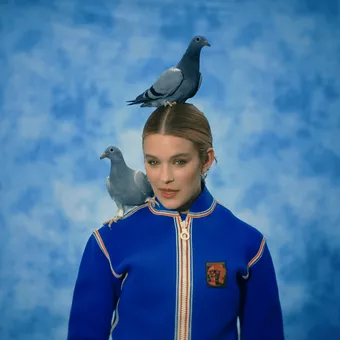






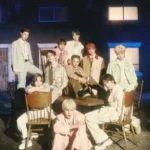
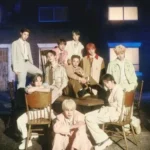
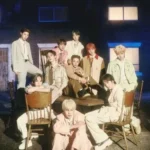
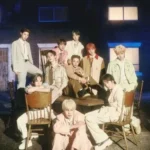
Leave a Reply